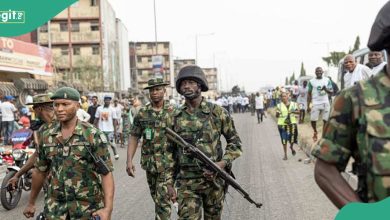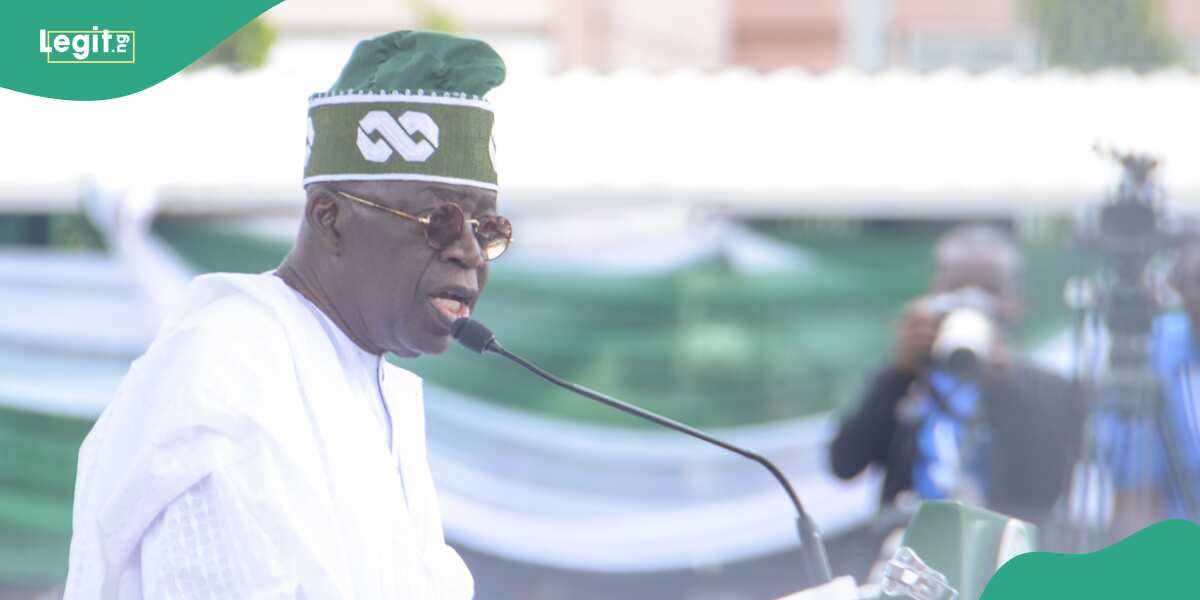Child Labour: List of 10 States with Worst Rates in Nigeria Emerges
- Child labour is a growing monster across Nigeria, especially in the north, according to the National Bureau of Statistics (NBS)
- The NBS revealed in its latest report that 10 states from the north and the south (with more from the southeast) are top on the list
- The state with the highest child labour rate is Cross River followed by Yobe, Abia and Plateau states
According to a recent report by the National Bureau of Statistics (NBS), the extent of child labour in Nigeria is alarming with over 24 million children working as minors and 14.3 million of them doing risky jobs.
The report by NBS claims that the northwest has the highest percentage of child labourers (6,407,102) and minors working in dangerous jobs (3,266,728).
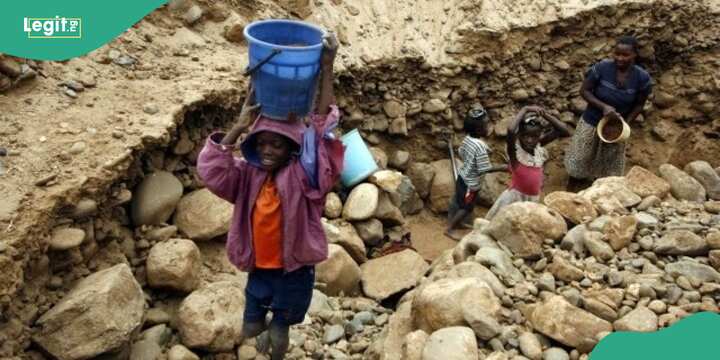
(Photo: @NBS_Nigeria/X)Source: Twitter
However, the southeast has the most worrisome record in terms of the percentage prevalence of child labour as the region accounts for 49.9% of all children engaging in child labour.
Added to this, two out of every five Nigerian children live in terrible conditions, as shown by Nigeria’s 39.2% child labour rate (24,673,485) and 22.9% hazardous work rate (14,390,353).
The report also shows that children between five to 17 years commit an average of 14.6 hours of work weekly.
1. Cross River
Top on the list with a staggering 67.4% of children involved in labour is Cross River. Although the percentage is highest among the youngest age group, the problem stretches into adolescence, a fearful situation the state government has to address quickly.
2. Yobe
Following Cross River is Yobe (62.6%). The northern state has one of the highest percentages of child labour apart from the fact that the youngest age group is seriously affected. The situation has a sharp drop in the oldest group.
3. Abia
Next is Abia state with 60.1% of children engaged in labour, with a peak in the 15–17 years category at 66.9%. This spike may indicate an increase in the reliance on older children for laborious activities.
4. Plateau
With a total percentage of 58.9%, Plateau exhibits a continuous pattern of child labour for all age groups. According to the agency’s data, there is a sustained level of child labour for most of the age categories.
5. Taraba
58.6% of Taraba’s children are working. The state shows lower percentages in the 12–14 age group, a huge difference from the more uniform trends obtainable in other states.
6. Ebonyi
Not far from this is Ebonyi (56.2%). In this southeastern state, the numbers are influenced by a lower engagement in the middle-age group. While younger and older children are frequently involved in labour, those in the transitional age of 12–14 are slightly less so.
7. Imo
Child labour in the 12–14 and 15–17 age groups is alarmingly high at 64.2% and 65.4%, respectively in Imo while its total is 56.2%. Sadly, in the state, child labour rises as children grow older.
8. Kogi
Kogi State shows a more uniform distribution across the age brackets, with 54.4% of children aged 5–17 involved in labour. The state appears to maintain a relatively balanced percentage across all age groups, suggesting a consistent level of child labour engagement.
9. Bauchi
In Bauchi, it is 53.3%. Interestingly, the data presents a declining trend with age; the 5–11 years group has a high incidence, which reduces progressively in older children, indicating a possible shift in responsibilities or opportunities as children mature.↳
10. Akwa Ibom
This state has a total of 52.5% of children engaged in labour. Despite being the lowest on this list, the figures are concerning, with the 12–14 age group being notably less affected than their younger and older counterparts.
States with highest out-of-school children in Nigeria
Meanwhile, TheTalk.NG had earlier reported that the percentages of out-of-school children across states in Nigeria have emerged, with northern states topping the list.
Kebbi, Sokoto, and Yobe states have 67.6%, 66.4%, and 62.9% of children aged 6–15 out of school, respectively.
Source: TheTalk.NG
Drama as DSS Storms National Assembly, Details Emerge

Tragedy as Lagos Man Dies While Watching Favourite Football Club Play

BREAKING: Tension As Soldiers Allegedly Take Over Popular Market in Abuja, Reason Emerges
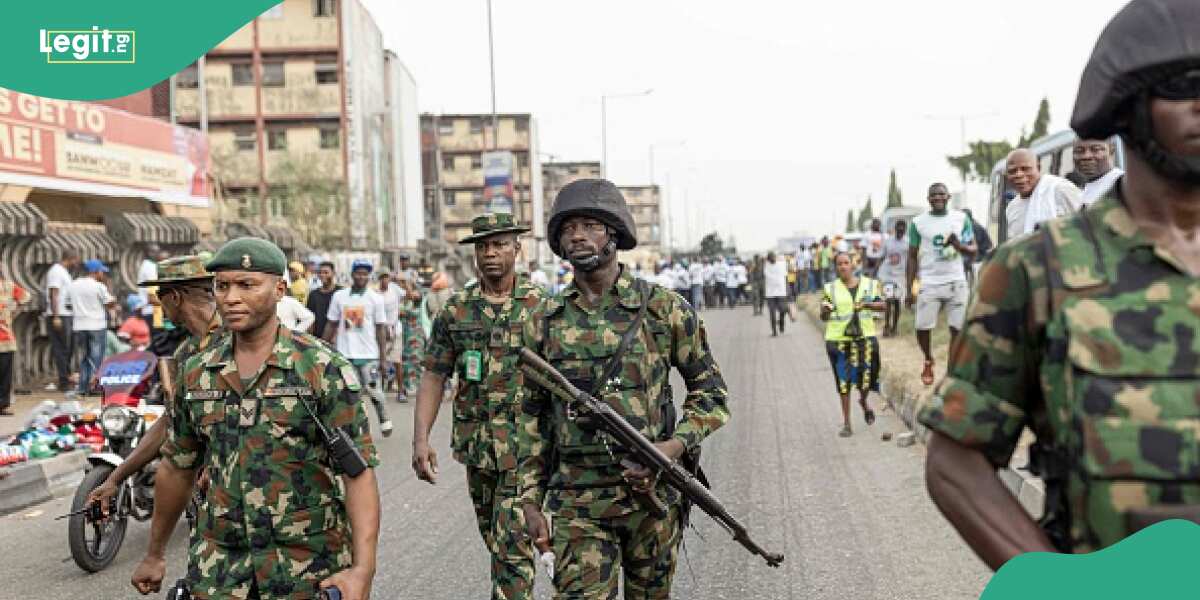
Photos, Video Emerge As Peter Obi Visits Late Actor Junior Pope’s Home, Comforts Grieving Family
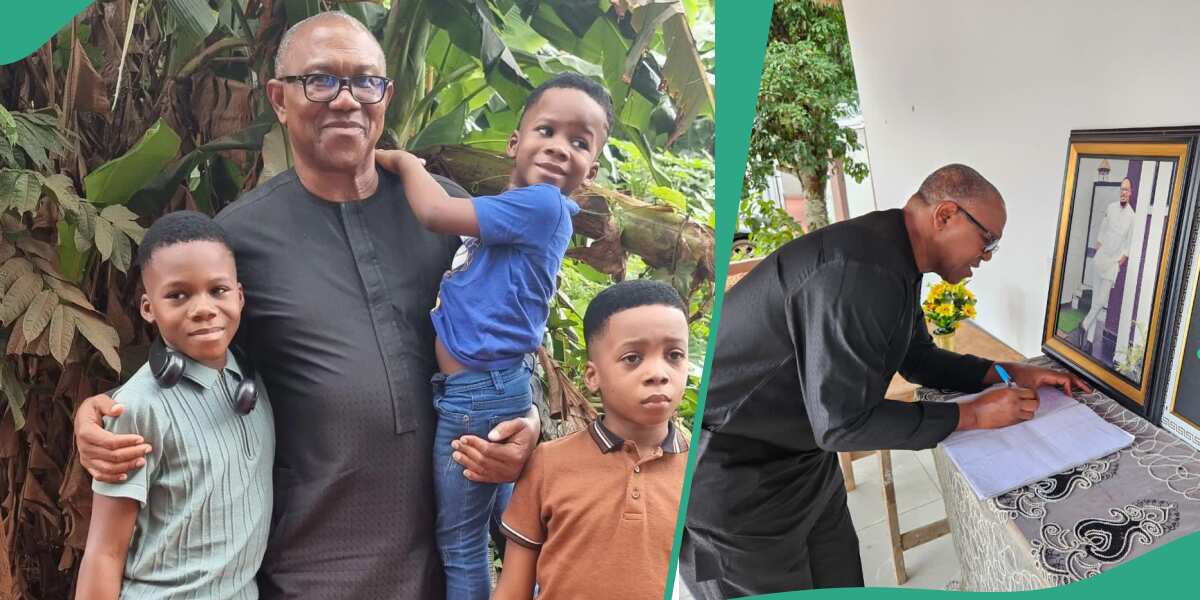
“Correct Pastor”: Mixed Reactions as Cleric Suspends Offering in Church Due to Harsh Economic



